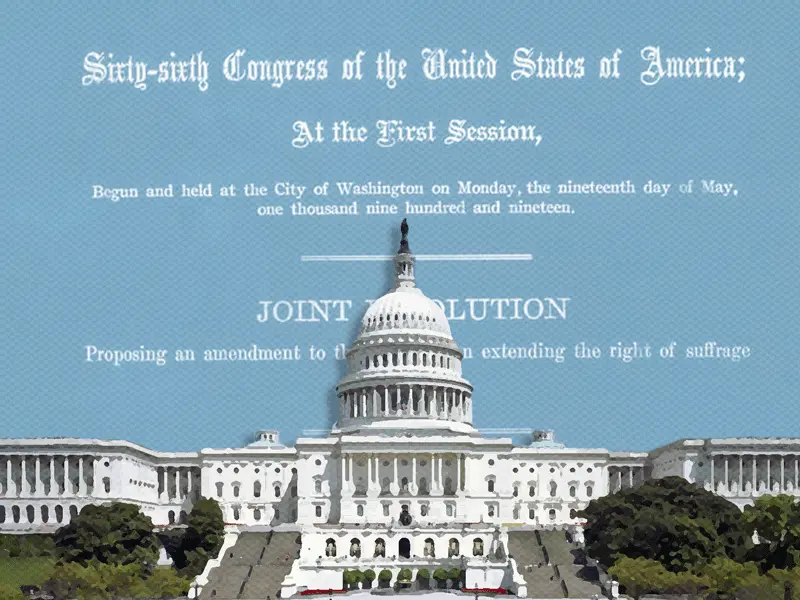Political Leaders
How John Adams Managed a Peaceful Transition of Presidential Power
In the election of 1800, for the first time in U.S. history, one party turned the executive office to another
Why a Planned Statue of Britain's 'Iron Lady,' Margaret Thatcher, Is So Polarizing
Set to be installed in the prime minister's hometown of Grantham next year, the ten-foot-tall work has both supporters and detractors
A Brief History of the Falklands War
The latest season of Netflix's "The Crown" dramatizes the 1982 clash between Argentina and the United Kingdom
A Brief History of Presidential Memoirs
Barack Obama's new autobiography joins a long—but sometimes dull—tradition
How Young Activists Got 18-Year-Olds the Right to Vote in Record Time
In 1971, more than 10 million 18– to 20-year-olds got the right to vote thanks to an amendment with bipartisan support
Why Defeated Presidential Candidates Deliver Concession Speeches
The tradition dates back to 1896, when William Jennings Bryan conceded the election to William McKinley via telegram
Why Do Maine and Nebraska Split Their Electoral Votes?
Instead of a winner-take-all system, the states use the "congressional district method"
Grandson of President John Tyler, Who Left Office in 1845, Dies at Age 95
Born 14 years after the nation's founding, the tenth commander in chief still has one living grandson
How the U.K. Parliament's Art Collection Is Linked to Slavery
An initial review identified 189 works depicting individuals associated with the slave trade
The History of 'Stolen' Supreme Court Seats
As the Trump administration seeks to fill a vacancy on the Court, a look back at the forgotten mid-19th century battles over the judiciary
Nero, History's Most Despised Emperor, Gets a Makeover
For nearly 2,000 years, the Roman ruler has been depicted as an egotistical monster who fiddled while Rome burned. But is this image accurate?
Fidel Castro Stayed in Harlem 60 Years Ago to Highlight Racial Injustice in the U.S.
The Cuban revolutionary shined a light on the stark economic disparities in America, much to the chagrin of the U.S. government
Controversial, Long-Delayed Eisenhower Memorial Finally Makes Its Debut
Celebrating Ike's political, military accomplishments required compromise between the architect and the president’s family
Renovations Reveal 19th-Century Mayor's Heart Entombed in Belgian Fountain
Workers unearthed a metal box thought to contain the local leader's organ last month
Women Senators Reflect on the 100th Anniversary of Suffrage
Twenty-four lawmakers shared testimonials with the Smithsonian's National Museum of American History
The Top 10 Political Conventions That Mattered the Most
As the two parties shift their conventions to be mostly virtual, we look at those conventions that made a difference in the country’s political history
How Geraldine Ferraro's 1984 Campaign Broke the Vice-Presidential Glass Ceiling
The charismatic congresswoman from Queens forged a path for women in American politics
What the First Women Voters Experienced When Registering for the 1920 Election
The process varied by state, with some making accommodations for the new voting bloc and others creating additional obstacles
100 Years of Women at the Ballot Box
How women have fought for and wielded the right to vote in the century since the 19th Amendment was ratified
John Lewis' Storied History of Causing 'Good Trouble'
The activist and congressman, who died Friday at age 80, viewed protest as crucial in American society
Page 4 of 14
:focal(384x171:385x172)/https://tf-cmsv2-smithsonianmag-media.s3.amazonaws.com/filer/3f/4d/3f4d8c16-3210-4ec0-9c3e-2c8bdb64da14/1800_v2.jpg)
:focal(982x566:983x567)/https://tf-cmsv2-smithsonianmag-media.s3.amazonaws.com/filer/2e/29/2e292bba-9cdb-48ca-b5ea-6489298a4322/thatch_img2.jpg)
:focal(706x419:707x420)/https://tf-cmsv2-smithsonianmag-media.s3.amazonaws.com/filer/fe/ad/feadbc97-31d8-4610-a67f-d6899b3a55da/falklands_1982.jpg)
:focal(777x518:778x519)/https://tf-cmsv2-smithsonianmag-media.s3.amazonaws.com/filer/47/18/4718dc00-60aa-4f07-8507-3a9838b1666c/pres_memoirs.png)
:focal(487x262:488x263)/https://tf-cmsv2-smithsonianmag-media.s3.amazonaws.com/filer/75/e4/75e44ddb-8ad6-4c66-9fb5-f60a9023ab39/opener.jpg)
:focal(580x232:581x233)/https://tf-cmsv2-smithsonianmag-media.s3.amazonaws.com/filer/75/39/75392ae6-d1bd-4c75-87fc-31fe552a32d8/william_jennings_bryan_1896_presidential_campaign.jpg)
:focal(876x617:877x618)/https://tf-cmsv2-smithsonianmag-media.s3.amazonaws.com/filer/f9/b0/f9b0902e-60d8-4c4c-9ecf-1c48f8fbec39/maine_and_nebraska.jpg)
:focal(411x190:412x191)/https://tf-cmsv2-smithsonianmag-media.s3.amazonaws.com/filer/9e/a6/9ea6f3aa-f031-46c0-b287-bfab0b0d9faa/john_tyler.jpg)
:focal(507x282:508x283)/https://tf-cmsv2-smithsonianmag-media.s3.amazonaws.com/filer/a6/fb/a6fb1dbe-a725-4771-8150-e083140557ff/st_stephens_hall_parliament.jpg)
/https://tf-cmsv2-smithsonianmag-media.s3.amazonaws.com/filer/0d/4a/0d4acfc4-a640-4d87-b5a0-a916bc64c6f8/istock-492881720.jpg)
/https://tf-cmsv2-smithsonianmag-media.s3.amazonaws.com/filer/75/9d/759da795-8514-4ca8-8ef0-856cbbf851ee/social_media_-_black.jpg)
/https://tf-cmsv2-smithsonianmag-media.s3.amazonaws.com/filer/dc/a8/dca88552-d2c2-4eb2-9f2b-e39b394d2510/ap_6009201457.jpg)
:focal(1542x1114:1543x1115)/https://tf-cmsv2-smithsonianmag-media.s3.amazonaws.com/filer/2f/af/2fafdd02-a41d-4bec-a2f1-e9f1267843dd/gettyimages-1227931969.jpg)
:focal(923x722:924x723)/https://tf-cmsv2-smithsonianmag-media.s3.amazonaws.com/filer/18/c7/18c7bc72-3da6-4f9f-b465-00ebc3e0d9f6/the_heart_itself.jpg)

/https://tf-cmsv2-smithsonianmag-media.s3.amazonaws.com/filer/f0/60/f060eff5-76ee-42cc-86af-2db2178c6640/gettyimages-551888207.jpg)
:focal(1825x716:1826x717)/https://tf-cmsv2-smithsonianmag-media.s3.amazonaws.com/filer/98/df/98df4cb8-d9b9-4f26-8a49-a216d1738281/gettyimages-576824060.jpg)
:focal(815x579:816x580)/https://tf-cmsv2-smithsonianmag-media.s3.amazonaws.com/filer/96/95/96958e06-7c08-41f8-86b7-d0eae3d94f5a/voter_registration_blue_copy.jpg)
/https://tf-cmsv2-smithsonianmag-media.s3.amazonaws.com/filer/e4/c0/e4c079a4-fdc5-499e-baad-2bc5e212d5b3/suffrage-thumbnail.jpg)
:focal(411x236:412x237)/https://tf-cmsv2-smithsonianmag-media.s3.amazonaws.com/filer/01/7b/017be7e6-cb40-4428-ba5a-e0bdc6faa153/2-55-2-84-1-1-1tif.jpg)